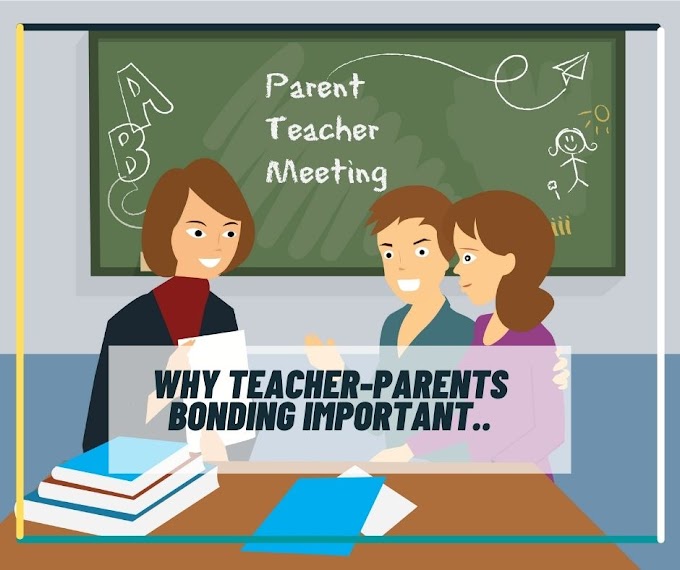"The way we ask our youngsters becomes their inner voice."
This quote resonates with me as my perceptions and behaviour as an adult are led by my inner voice. My inner voice has been shaped by my concepts and my learning from all the emotional and informative conversations that I have had with my parents during my childhood days. So is that the case with all readers, isn’t it?
But are we doing an the same with our youngsters? Are we helping them to build a constructive and strong inner voice? Are we helping them create a positive self-image by communicating with them at deeper levels in life? Talking with kids should be an important daily event. But, as parents, we are delayed with busy schedules. So we discover it convenient to keep the conversation with our youngsters light and quick to advance to the next thing on our “to-do” list. This has become a harsh reality. Despite spending hours with our child under an equivalent roof, we will seldom squeeze out some quality time to spend with them.
Research suggests that the most direct parent-child relationships are characterised by positive communication and interaction during the first years. When parents stay in-tuned with children through attention and conversation, children could be less likely to act out or behave in ways that create conflict or require discipline.
Here are a few effective ways of communicating with our little ones:
1. Make Eye Contact
Every time you ask your child or when your child is lecturing you, maintain eye contact. Maintaining eye contact indicates that you are active and attentive within the conversation.
If you can’t hold eye contact, get on your knees or sit down so your eyes are on an equivalent level as his. This may encourage open and transparent communication.
2. Acknowledge Your Child’s Feelings
When you acknowledge a kid’s feelings and emotions, they feel secured and accepted. This is often precisely what happens once you empathise together with your children. Once you build empathy for your children, they learn to be more sensitive and accepting towards other peoples’ feelings and emotions. Moreover, just by acknowledging their feelings, you, as parents, teach them that their feelings are authentic and valid.
3. Rationalise The Correction
Having grown up during a joint family, I had many correctors and advisors around. Whenever I might make an error, I used to be loaded with comments like ‘stop behaving like this ‘or ‘this isn’t how it’s done. Just asking to prevent behaving in a particular manner isn’t enough to instil a replacement behaviour. What’s essential is that a simple explanation should even be provided for it. Giving a composed reason will help your child understand the implications of their behaviour for others (e.g. if your child teases another child for wearing glasses, inform your child that wearing glasses helps the opposite child to ascertain reasonably. Also, remind them that teasing can hurt others feelings).
4. Teach Them the way to Say ‘No’ Firmly
While parents say a’ no’ firmly to a child’s unrealistic request or unacceptable behaviour, it’s of paramount importance to teach your children about doing an equivalent in situations that make them uncomfortable. You ought to allow them to know that each ‘no’ isn’t a negative answer. Instead, it’s more sort of a choice made to make sure their safety and security.
5. Use More “Dos” Than “Don’ts.”
“Don’t just sit like that”, “Don’t hit your sister”, don’t you say these statements too often? You, as a parent, know what you don’t want to happen, so you start with a “don’t” statement. Instead this statement would convey the message rightly of not doing a specific thing, the downside of “don’t” comments is that you fail to market the positive behaviour you would like to ascertain. Therefore you’re more likely to strengthen the behaviour you don’t want. Instead, you ought to use more respectful “do” statements. Swapping your “don’ts” for “dos” can appear as if this: “Play gently together with your sister”, “Please keep your back straight while sitting”
6. Use Kind Words
Kind words create a respectful relationship and better communication together with your child. It’s true that children who are spoken to with appreciation and respect even have better self-worth, which allows them to thrive. On the contrary, unkind words that ridicule them leave them feeling bad an disliked. Some samples of kind words are:
“Thank you for helping me with the dishes.”
“You did an honest job of getting your room clean.”
“That makes me feel good.”
“I love you.”
7. Be An Emotional Coach
They say that the power to concentrate is essential because of the ability to talk. In doing so, you’ll develop an emotional bond necessary for establishing and maintaining mutual respect. Effective emotional coaching helps children understand the dynamic fluctuations of life. Children who older in families that spend time talking about emotions are more academically successful, have better friendships, fewer infectious diseases and may handle difficult social situations more effectively than children whose families don’t mention feelings.
Lastly, the planet is often overwhelming for our youngsters. By communicating regularly with children, you’ll help them create a positive view of themselves and, therefore, the world.
Good communication is the key to a healthy relationship with your child and heart of more harmonious homes and . It provides an area your child can thrive and grow from. Good communication with kids form the idea of excellent communication with people as your kid grows into an adult.
Keep performing on these communication skills. It is often hard initially. But like all skills, practice helps. Once you stumble, repair it together with your child and begin afresh.
Being the best school in Jodhpur, at Vidhyashram International School, we communicate with students in all possible ways to help them grow and inculcate good habbits and communicate better with people when they grow.







0 Comments